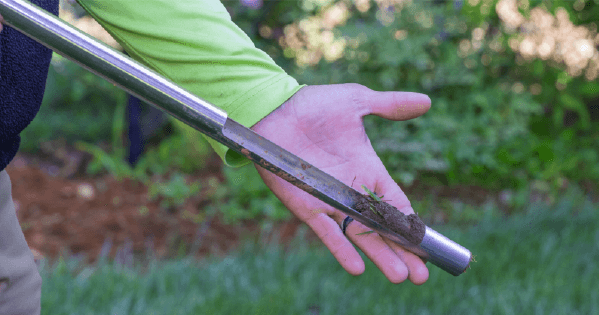Can Mosquitoes Bite through Clothes?

Whether you’re brainstorming alternatives to mosquito repellent, planning a hike near a creek or lake, or are just curious about the abilities of the common mosquito; the question of whether or not mosquitoes can bite through your clothes has probably crossed your mind.
The short answer to the question is YES. Mosquitoes can in fact bite through clothing. However, there are some clothes and some fabrics that are easier for mosquitoes to bite through than others.
In this blog, we’ll share what clothing and fabrics will leave you vulnerable to mosquito bites and which clothing and fabrics will offer you the best protection against mosquito bites.
Clothing That is Vulnerable to Mosquito Bites
It should go without saying that any clothing that leaves your skin exposed will warrant mosquito bites. That includes, shorts, tank tops, crop tops, etc. Unfortunately, all of those clothes are what we often like to wear in the warmer months – when mosquitoes are most active and on the hunt!
If you want to cover your skin with clothing to prevent mosquito bites, there are a few types of fabrics and clothing that you want to avoid because they can still leave you vulnerable to mosquito bites. This includes tight fitting clothes; soft, thin fabrics; and loosely woven fabrics.
Tight Fitting Clothing
If you’re dressing for warm weather but want to limit the amount of mosquito bites you receive, then you might consider wearing breathable athletic wear such as leggings, yoga pants, athletic tops, etc.
However, many of these options are often tight fitting which are not going to protect you from the sharp, needle-like proboscis that mosquitoes wield.
This is because there is not enough of a buffer between the layer of clothing and your skin. When a mosquito bites through tight-fitting clothes, they might as well be biting your bare skin!
Soft, Thin Fabrics

Much like tight fitting clothes; soft, thin fabrics are also going to offer you little to no protection from persistent mosquitoes. This is because thin fabrics do not provide a barrier thick enough to prevent a mosquito’s proboscis from reaching your skin.
Fabrics that you’ll want to avoid when dressing to protect yourself from mosquitoes include: cotton, silk, crepe, voile, linen, georgette, and chiffon.
Loosely Woven Fabrics
Fabrics that are loosely woven are also going to leave you open to mosquito bites since mosquitoes can bite between the stitches or even use the space in between stitches to get underneath your clothes!
Some loosely woven fabrics to avoid include: buckram, gauze, chiffon, gabardine, mousseline, and leno.
Clothing That Protects Against Mosquito Bites
If you can guess, the clothing that will provide the best protection from mosquito bites will be the opposite of the clothing that leaves you vulnerable to mosquitoes.
Loose-fitting clothes that leave very little exposed skin are going to offer the most protection against mosquito bites. Fabrics that are tough and thick will also be effective at preventing mosquitoes from biting your skin.
Unfortunately, the clothing and fabrics that we’ll discuss in this section are often not practical to casually wear for outdoor activities during the summer months when mosquitoes are most active.
If you are hiking or traveling in areas where the risk of contracting disease through mosquito bites is much higher, wearing these clothes in the heat of summer is a must. However, if you want to enjoy your deck or patio on a summer evening, you probably won’t want to wear what’s going to offer the best protection.
Though there are alternatives to protective clothing such as mosquito repellent spray and candles, the most effective way to completely avoid getting bitten is through professional mosquito control.
Loose-Fitting and Conservative Clothing
Clothes that are loose fitting and cover up most of your skin will do the best job at preventing unwanted mosquito bites.
This includes long sleeves, long pants, long socks, and even netted hats!
Tough and Thick Fabrics

As we discussed, mosquitoes can use their needle-like proboscises to easily bite through soft, thin fabrics, but they struggle with biting through tough and thick fabrics.
These fabrics include: denim, leather, flannel, tweed, and wool.
About Simply Green’s Mosquito Control Service
We offer different outdoor mosquito control treatments to help rid your yard of these pests and keep them from coming back. Our backyard mosquito control products are safe for use around pets and children, and they work quickly to get rid of mosquitoes.
To control adult mosquitoes, our product is a synthetic version of the Pyrethrum extract found in Chrysanthemum flowers. In areas of standing water in your yard, we use Bacillus thuringiensis israelensis (Bti). Bti is a naturally occurring bacterium found in soils that specifically targets and only affects mosquito larvae. Bti interrupts the mosquito lifecycle by eliminating larvae before they mature into adults. It does not affect other insects, including honeybees. All of our EPA registered products are safe for kids and pets and do not pose a risk to your family.
If you’re looking for an easy way to keep mosquitoes out of your yard, our outdoor mosquito control treatments are a great option. Contact us today to learn more about our products and how we can help you get rid of mosquitoes for good!
About Simply Green Lawn Care

Simply Green aims to provide the highest quality lawn care, mosquito control, and lawn pest control services to Georgia residents.
We are locally owned and operated which allows us to be accessible, attentive, and responsive for customers in Georgia.
Our well-trained team is easy to work with and determined to exceed expectations.
All our plant health care specialists are Georgia Department of Agriculture Certified and maintain their Category 24 applicators license.


